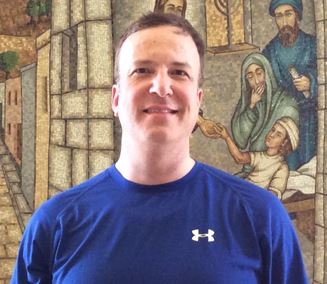
Pope Francis said that the power of grace “comes alive and flourishes to the extent that we, in faith, go out and give ourselves and the Gospel to others, giving what little ointment we have to those who have nothing, nothing at all.” In Evangelii Gaudium, Pope Francis issued the same call to all Christians, called as we are to be missionary disciples. Evangelizers thus take on the ‘smell of the sheep’ and the sheep are willing to hear their voice.
On the Fourth Sunday of Easter, the Church’s liturgy presents to us the figure of Jesus as the “Good Shepherd.” The Gospel reading is taken from the tenth chapter of John’s Gospel. This Sunday the passage is John 10: 11-18. I wish to reflect in this column on this Gospel passage in which Jesus identifies Himself as the “Good Shepherd who lays down His life for the sheep.” Every Catholic is called to be “a Good Shepherd” in the environment where he or she lives: in the family, at work, school, and in the community.
Several years ago, a man shared with me how he was personally and spiritually moved by an eighty-five-year old homeless woman living on the streets of Chicago. Week after week, he would see her on his way to work hanging around the Daley Plaza. Security would no longer let her come inside the building because of her incontinence. After speaking with security, the man learned that she was receiving a social security check and some general services through the Chicago agency Thresholds. Thresholds is a nonprofit agency that serves people who are homeless and seriously mentally ill. They strive to help people who are often hard to help. She consistently refused housing services and would rather sleep on the streets. The man said he would buy her hand-warmers, jackets, boots, gloves, scarves, hats, and blankets in the hope of helping her survive the cold winters. She often gave them away to others who were homeless. To me, this generous man, the workers at Thresholds, and this homeless woman are all examples of what being a “Good Shepherd” is all about in our world today. We are called to get involved in the lives of one another and show love, concern, and generosity.
The image of the Good Shepherd presented in today’s gospel is an encounter with a God who offers us fierce love, a deep intimacy, and an abiding presence throughout our life. The Good Shepherd is a centering image for all of us to use in our prayer life. It is the image we can pray with when we need stillness, comfort, and a gentle reassurance. It is also the image we can pray with when we feel lost or confused, or when we are in need of healing of some kind. And it is most certainly the image we can pray with when we feel anxious, scared, or experience self-loathing.
As with all images of prayer, the image of the Good Shepherd needs to expand and challenge us to not become static, stagnant, and self-serving in our relationship with God and one another. The Good Shepherd does not just stay in the pasture where he is safe and protected. A life with this Good Shepherd image of Jesus compels us to do more than resting in green pastures. It calls us to move out into the world and to become Good Shepherds ourselves.
The biblical narratives provided this weekend give us an account of what shepherds and disciples do: tend, look after, rescue, lead, pastor, seek the lost, provide nourishing food, water, and rest, bind up the injured, and heal the sick. Who are the Good Shepherds in our own life? Where do we experience in one another wisdom, dreams, healing, fierce warriors and protectors, and prophets? Let us strive to live as Good Shepherds by living simply, humbly, and fearlessly in our commitment to the needs of one another. This is the heart of what it means to be true disciples of the Good Shepherd.
(Fr. Rich Jakubik, Holy Family’s Associate Pastor, is writing this column while Fr. Terry is away.)